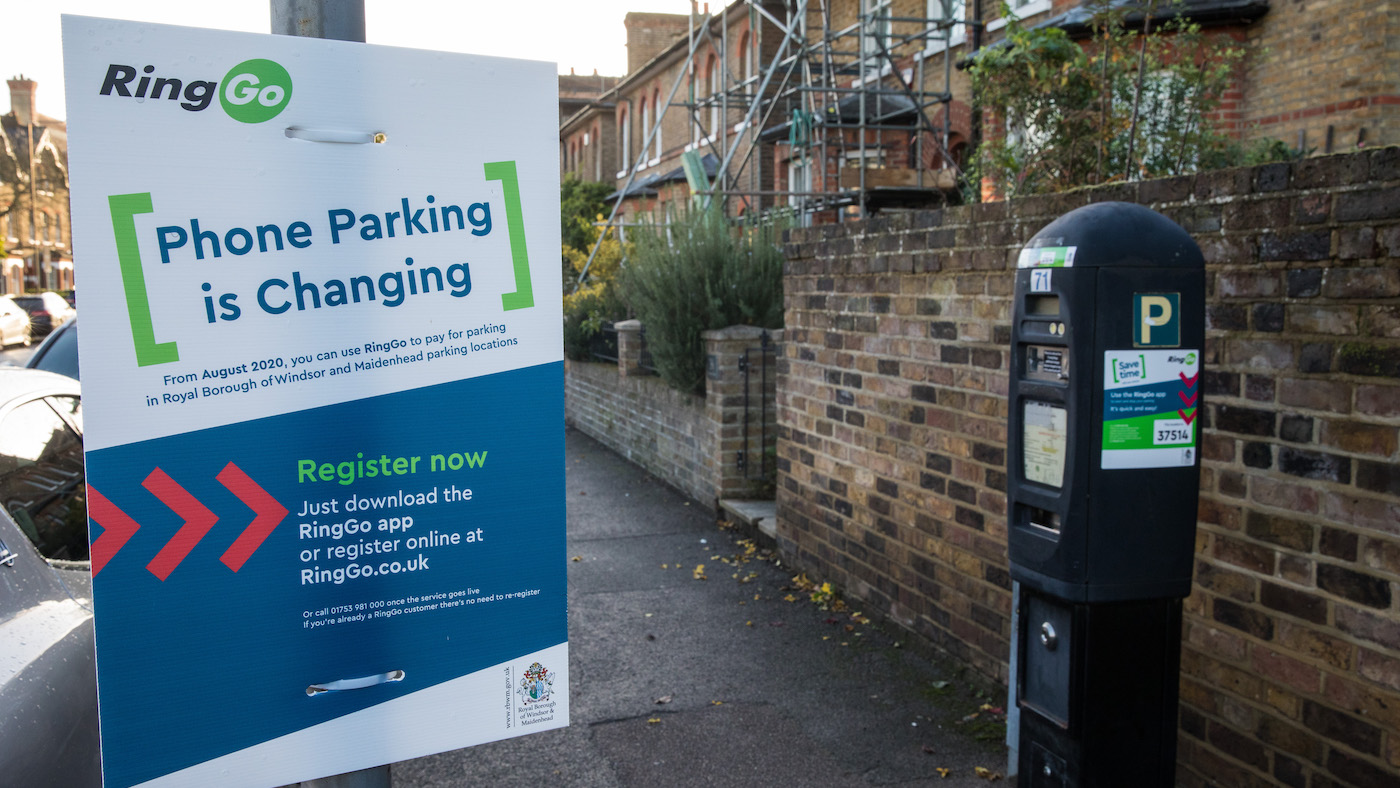The rise of parking apps: a barrier to older drivers?
Councils are increasingly replacing traditional cash machines with apps, to the frustration of many

A free daily email with the biggest news stories of the day – and the best features from TheWeek.com
You are now subscribed
Your newsletter sign-up was successful
An increasing number of car parks across the UK are scrapping conventional ticket machines and using mobile phone apps to take payments from drivers.
For councils, the measure means significant money savings, not having to “maintain, repair and replace machines or collect cash”, said the Daily Mail. But for many drivers the apps can prove “fiddly” and some older drivers are “giving up on trips out as a result” of not being able to use them.
Moreover, drivers must download the various apps to their phone and set up an account before beginning the “interminable chore of entering card details and number plate”, which can often be “derailed by poor phone signal or a glitchy app”, said The Guardian.
The Week
Escape your echo chamber. Get the facts behind the news, plus analysis from multiple perspectives.

Sign up for The Week's Free Newsletters
From our morning news briefing to a weekly Good News Newsletter, get the best of The Week delivered directly to your inbox.
From our morning news briefing to a weekly Good News Newsletter, get the best of The Week delivered directly to your inbox.
The rise of parking apps is also a consequence of “mobile phone providers switching off 3G data networks”, which contactless parking machines operate on, said the Mirror. The local council in Bromley, southeast London, will scrap pay and display machines altogether in May in favour of apps, citing a cost of “£1 million to update all its machines to 4G”.
‘A barrier to drivers’
In practical terms, a move away from cash payments seems inevitable, but the “alternative must be efficient and these apps just aren’t”, wrote Holly Mead in The Times. There are “more car parking apps on my phone than any other type”, she said, and it’s common to find yourself “frantically trying to download another app when there is no signal and no option to pay with actual money”.
The number of fines handed out in non-cash parking areas has “ballooned” in part because of the unreliability of some parking apps, reported The Guardian. Councils that had cash-paying options “collected £158m of parking fines”, while those that did not collected £257m. Cashless payment-only areas are proving “lucrative or pragmatic for councils” but “stressful for drivers”, the paper said.
This “barrier” to drivers particularly affects the over-65s, said Talk TV. A poll by the British Independent Retailers Association showed “more than half of over-65s” were put off using parking apps, while “four-in-ten across all ages” said it discourages them from going to town centres.
A free daily email with the biggest news stories of the day – and the best features from TheWeek.com
Automotive giants cashing in?
There are also questions about those who own the parking apps, with a number of automotive giants cashing in on parking apps. “Ten members of Germany’s sprawling Porsche automotive dynasty” were “persons of significant control” in the PayByPhone app, reported The Guardian, while market leader RingGo used to be part of BMW-Daimler until it was sold in 2021 to “Vitruvian Partners, a pan-European private equity powerhouse with around £8bn of assets”.
Councils that use parking apps “deny they are forfeiting valuable revenues that could be spent on public services”. A spokesperson for Nottingham council told The Guardian that “using PayByPhone saved the authority money, reduced incidents of vandalism and theft at pay machines”.
Edmund King, president of the AA, told the Daily Mail that “councils and parking operators think drivers serve them and not the other way around”. He added that “drivers just want simple ways to pay for parking”.
Richard Windsor is a freelance writer for The Week Digital. He began his journalism career writing about politics and sport while studying at the University of Southampton. He then worked across various football publications before specialising in cycling for almost nine years, covering major races including the Tour de France and interviewing some of the sport’s top riders. He led Cycling Weekly’s digital platforms as editor for seven of those years, helping to transform the publication into the UK’s largest cycling website. He now works as a freelance writer, editor and consultant.